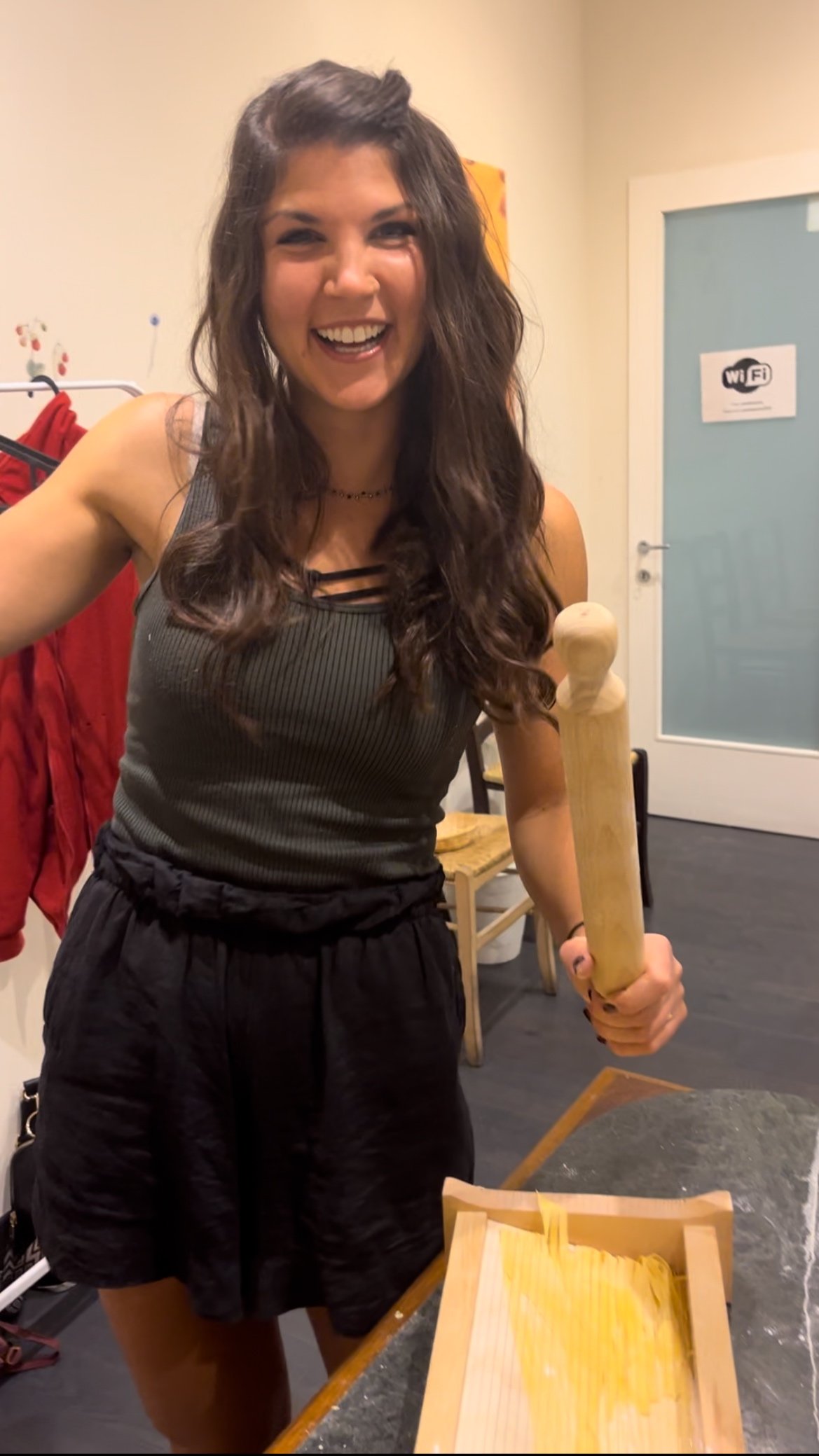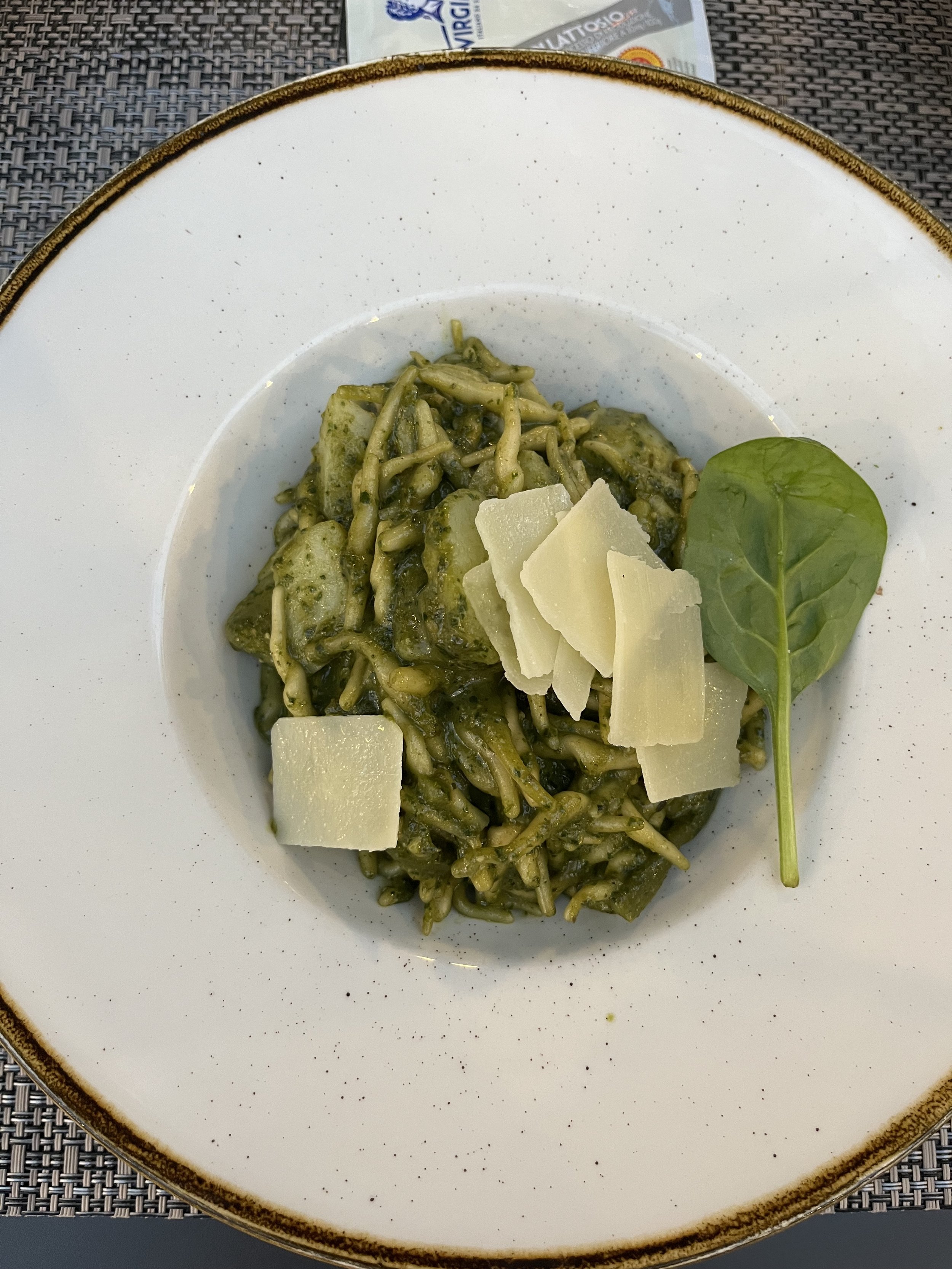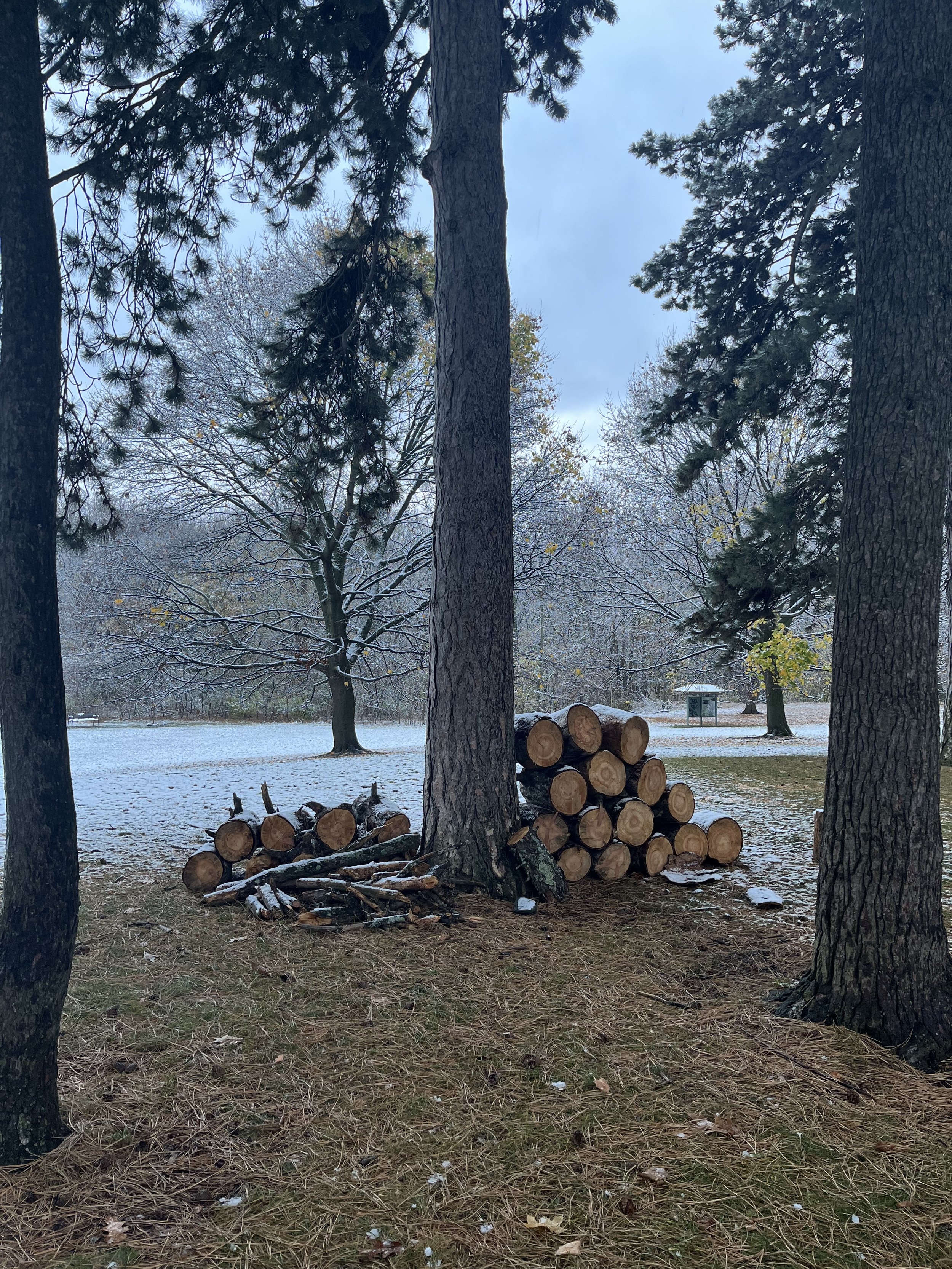September of 2013 is the last month I remember feeling decently at ease around food. As a kid I was intuitive about eating; I never questioned: is this one meal going to completely change my body? What is going to happen to me if I eat this food?
Recovering from an eating disorder is incredibly difficult.
What I didn’t realize when I made the choice to recover from my eating disorder is that getting back to a healthy weight didn’t mean my mind went back to a healthy place. I wish it were that simple.
It’s not.
For so many reasons.
It’s a constant battle with reality because of this obvious truth: we need food to survive.
And while I still have you here, I want to make one thing very clear: your eating disorder is not your fault.
Perhaps you need to read that a few more times to really let it sink in. Please do so. I repeat: your eating disorder is not your fault.
Recovery can feel incredibly daunting like you’re looking up at a huge mountain to climb. The Mount Everest of emotional healing, if you will. Because of this, healing and freedom can feel so far away. To that, I tell you: Yes, the journey upward is hard and painful; it will open the door to difficult emotions and lies that have imprisoned you which can feel scary, dark and unfamiliar. But that is the beauty of healing: Healing is about unlocking the truth, which always leads to the gold that is within your soul. Because remember, your eating disorder is a voice of shame and judgment and that is not who you are.
To put eating disorder recovery into a different light, let’s take the basic need of sleep. Although not every aspect of an eating disorder can be compared to it—it is far more convoluted, layered and unique to everyone’s individual story than that—it may help those who’ve never been through an eating understand a little better. And to those who have experienced it, or are in the throes of it, this may put it in a new light.
Imagine spending all day thinking about sleep. Thoughts circulating in your head over and over: “When should I sleep today? Should I sleep right now? Do I need sleep right now? Should I put off sleep for just a little bit longer? What if I sleep too much? What if I look different after sleeping? Will people think differently of me if I sleep right now?” From the very moment you open your eyes in the morning these thoughts swirl inside your mind like you’re caught up in a tornado.
It sounds ludicrous, right?
That is the pervasiveness of an eating disorder because it targets something that is so essential to living. It’s a constant, tiresome battle between what the mind is telling you and reality. If you think about it, doesn’t it sound strange to question a basic need? The above scenario doesn’t even capture the social aspect of an eating disorder: not wanting to eat out with friends, not knowing what is in your food, feeling unsafe to eat outside your normal food, not wanting to miss out on meaningful memories surrounded by food but also feeling paralyzed by the thought of eating something that isn’t deemed “safe.”
The very thing you are trying to control is actually controlling you. This is an incredibly imprisoning feeling.
In addition, merely looking at a menu feels like 4,753 tabs are open in your brain. It’s so overwhelming sometimes you may forget to breathe as you scan the plethora of food options. Not only that, but once you’ve made the decision, the fear of eating it—no matter what it is—doesn’t just last while eating at the restaurant. It follows you back home, too. You think about what you ate at the restaurant long after the meal is finished. Did I mention, all the while, trying to keep a conversation going?
It’s painful to know that I’ve completely missed the point of gathering with friends or family around a table to build connection and long-lasting memories. It is not because I’m “vain” or “superficial.” It’s a deep, aching pain to know that I’m on the outside of what should be a meaningful joy-filled experience because inside I’m going through such mental torment.
This is not something one chooses.
If you have experienced an eating disorder, you know this crippling experience.
But I have good news for you: Healing is possible. While no one chooses to develop an eating disorder (We don’t wake up one day and think: “I’m going to develop an eating disorder today!”), it is your choice whether or not you stay in it. That is the difference.
The power is in you.
The question is: Do you want to heal but you just don’t know how or even where to begin? Or, perhaps you’ve begun the journey of healing, but feel as though you’re stuck somewhere in the middle.
Everyone’s journey is different and I will not pretend to have all of the answers or everything figured out. But I do know we are all braver, stronger, and more resilient than we even realize: recovery is one of the greatest revelations of this. It is an opportunity to tap into those depths. You are capable of discovering deeper healing, freedom and peace.
Below are a few tips and techniques I’ve found helpful in my recovery process. I recommend these strategies in addition to seeing a mental health counselor and ideally a dietitian if you are able to. It does take patience, consistency, trust, and courage, but remember the reason you are choosing to recover. And continue to choose that every single day. Freedom is on the other side of fear and that is worth every single effort.
Find your why.
In this first step, reflect on your own meaningful reason to recover. Find your why. Why do you want to heal? So that you can live and love more fully? Because you know you have more to offer the world and you want to shine bright again? Do you want to feel your best and be at home with who you are? Dig deep and find the deepest, most authentic reason you are choosing recovery. This will be your anchor on the days you feel like giving up; your North Star when you feel the light inside you is dwindling. You deserve to heal. Did you know that? You deserve to be healed and whole. It begins with the choice. Find your why. Write it down and put it somewhere that you will see everyday. Perhaps your bathroom mirror or on your fridge. Remind yourself you are capable and worthy of healing and it comes from choosing your “why” over and over again.
Reframe the fear.
I used to keep a gratitude journal and each night I’d write down 3 things I was grateful for. I initially started this during a time I was in the shadows of depression (did I mention eating disorders like to hangout with depression, too?). Taking a bit of a spin on that, I’ve started to document one way I faced a fear that day—you can even share this with a loved one or a friend. For example: “Instead of declining dinner with my friends today, I went out with them even though it felt really outside my comfort zone.” This may sound simple or basic, but for someone in the throes of an eating disorder, this is no small feat. It is brave. Succumbing to the fear voice in your mind always feels defeating. In this exercise, you’re using your fear as an opportunity to be stronger than your eating disorder voice. Talk about empowering (even if it doesn’t always feel that way in the moment)! Reframe the fear: take brave action. You not only realize how brave you already are, but you tap into a deeper part of yourself that has been waiting to emerge: your truest, bravest self. She was there all along.
Celebrate the tiny victories.
If you’re not familiar with the song “Tiny Victories” by Christina Perri, I urge you to listen to it (and perhaps turn it up on the days that recovery feels more difficult). She has a lyric that really nails down the healing process:
“And if battles can win a war
I can keep picking my sword up off the floor
And learn to treasure these
Tiny victories.”
Each time, every day, that you choose courage over fear is a huge victory. Every time you reframe your fear and take brave action is something to celebrate. It happens in the tiny moments throughout the day. Celebrate each step in your recovery. Do something that feels pampering to you. It doesn’t have to be extravagant, but it needs to feel like a celebration. Perhaps you pick out a succulent at the flower shop or paint your nails with a friend. You’re gaining back your life—and that is worth every reason to celebrate.
Use setbacks as data.
Since working more closely with a dietitian, I’ve experienced first hand the hills and valleys that happen in recovery. One week I will feel like I’ve made progress in leaps and bounds. And other weeks I find myself feeling like I’ve completely evacuated my own body. My nervous system feels like an alarm is going off 24/7. It’s disorienting and can make it hard to function. This is not only ok, but it is normal. Healing is not linear and having a harder day or week does not mean you’re regressing or that you’re a failure; it merely means you’re climbing the mountain and it’s getting steeper. If you think about it, the closer you get to the mountaintop, the harder your body has to work. Breathing is more labored, your body is tired and your mind is fatigued from all of the hard work. This is good news: you are nearing a breakthrough. Next time you feel set back—whatever that means in your personal recovery process—write down what led up to it: actions, behaviors, emotions, the thoughts. Write it all down. This is important data. It not only provides insights for the future, but can help get to the root of a reoccurring habit. Setbacks, taken as data, set you forward. Remember: the harder it is, the closer you are to something beautiful.
Feel your way through.
In the healing journey, you will feel an assortment of emotions: grief, sadness, joy, pleasure, fear, defeat, empowered, etc. Welcome to being a human again! One day you may feel fine and the next moment you feel sadness or grief or perhaps lightness and joy. This is how you know you’re healing because you are actually feeling. You’re moving through the emotions, not running away from them. It’s the process of un-numbing or, as my friend put it, “de-thawing.” For me, living with an eating disorder feels like I’m simultaneously numbing, running away from myself, rigid, and robotic. It’s basically the exact opposite of being a truly feeling, healing human. Instead of using food or restriction as a way to run away from my feelings or in an effort to feel safe and in control, I choose to turn toward the feeling. Oh, hello, friend. It’s you again. Lean into the vulnerability; feel your way through; this is how you know you are healing.
Get embodied: use the power of your breath.
I have found that the deepest form of healing occurs when I am truly connected, body and mind. This can be incredibly difficult when you’ve spent so long being disconnected from your body. Patience and grace are key here. In the words of my dietician: “Your body is not broken. Your body is brilliant.” It’s time to tap into that brilliance by bravely coming back into the body—this happens naturally when we are still enough to be present within ourselves. There are many great ways to do this, but one of my favorite ways is through breath work. There are tons of books and YouTube videos out there, but below is one of my favorite breath work practices that continues to help me get back into an embodied state. Please note, this is taken from Ashley Neese’s book “How To Breathe”:
The practice:
Take a comfortable seat in a chair with your feet planted on the floor.
Set an intention for the practice (As an example, mine is usually: I am present in my body. Choose one that resonates with you).
Take 5 cycles of breath: inhaling gently, exhaling softly.
With a slow inhale, imagine drawing up energy from the earth into the soles of your feet, up to your knees and back toward your hips (I like to imagine this energy as a gold light).
On the exhale, imagine the energy flowing from your hips to your knees and then back down through the soles of your feet.
Continue this for 5 minutes.
After 5 minutes, settle into your natural rhythm of breath for 1 more minute.
Close practice.
Optional: journal your experience.
Dear one, where you are today is not your final destination. You are not your eating disorder. Like the clouds parting on a foggy day, it’s time to come out from behind the gray and allow your radiance to shine again. You are needed in this world and your recovery will inspire those around you. So keep going. Lean on others for support. When you feel defeated, keep your eyes on the view ahead. You are stronger than your deepest struggle.






